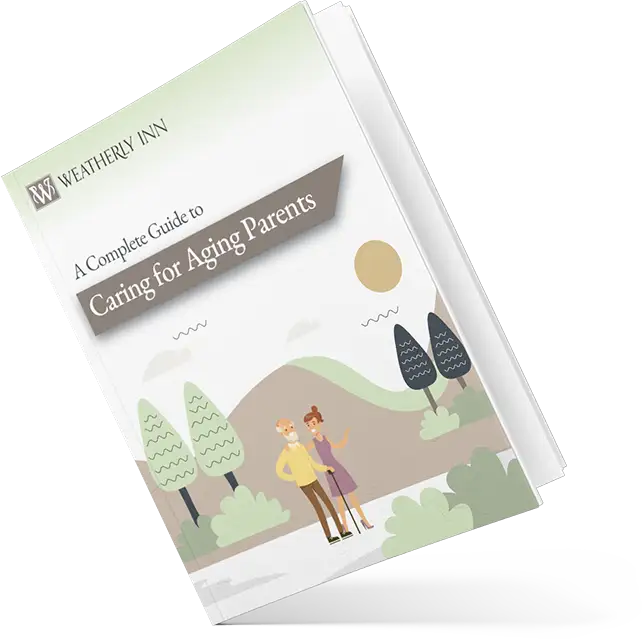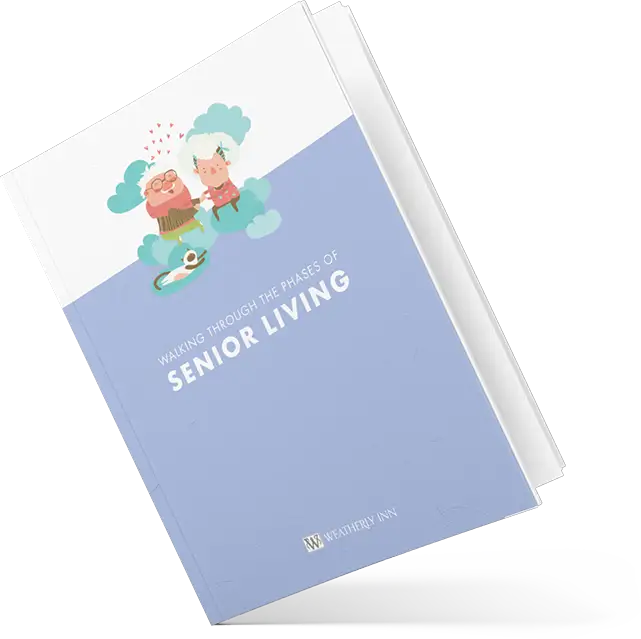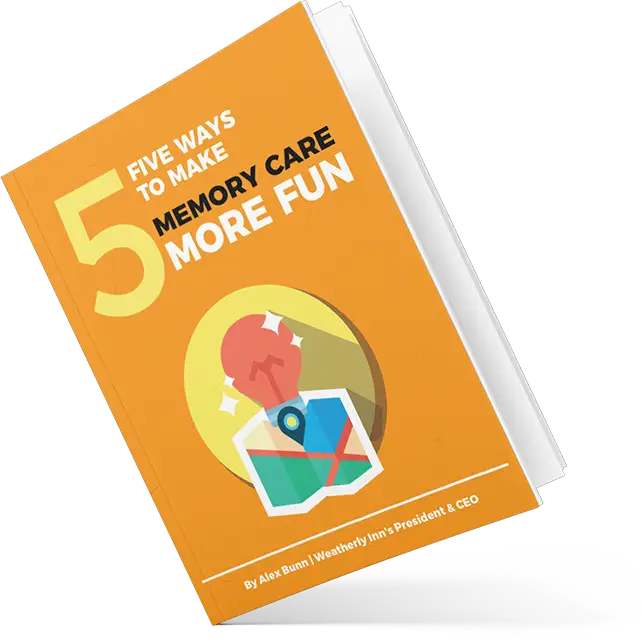August 28, 2025
Starting a conversation about moving into senior living with your loved one can be difficult. Bringing the topic up in the first place is a hurdle in and of itself, especially when you’re not sure what kind of reaction to expect. Even the most understanding person can seem daunting in the face of such an impactful conversation. The good news about this apprehension: it’s perfectly normal to feel that way. The transition to senior living is one that thousands of families make every year, and with the right approach, you can broach the topic in a way that makes everyone involved feel seen and heard. Let’s break down the best way to talk to your aging parent about senior living so you can move forward together.
Knowing When It Might Be Time
Signs That Extra Support Could Help
Changes can be gradual, so it’s easy to miss them at first. You might notice that your loved one has begun having trouble keeping up with daily living tasks like cooking, laundry, or bathing. Unsteady walking or recent falls are another good indicator, as well as a decline in memory that leads to forgotten medications or appointments. Look out for these physical signs, but also keep an eye out for emotional withdrawal. If your loved one has begun spending more time alone than usual, paired with any of these signs, it’s probably time to start thinking about a change.
When Do Most People Move?
Every situation is unique, but many people make the move between the ages of 75 and 84. More than any age, the state of your loved one’s safety, health, and quality of life is the best indication of the right time to move. Every person’s experience is varied, so listening to their needs and keeping an eye on their circumstance will do far more good than simply deciding on an age.
The “40–70 Rule”
This simple guideline suggests starting the conversation by the time you’re 40 or your parent is 70. Talking early, before a crisis, makes it easier to plan together.
Preparing Before You Sit Down Together
Get Clear on Your Why
Before you bring it up, take some time to think about your concerns. Are you most worried about falls? Loneliness? Managing health conditions? Knowing your reasons will help you communicate them with care.
Know What’s Out There
Senior living comes in many forms, so it’s important to know what your options are before entering into a conversation. Independent living is for those who want a maintenance-free lifestyle surrounded by a community. Assisted living is for help with daily needs while keeping independence. Memory care is for Alzheimer’s or dementia, and respite care is for short-term stays or caregiver breaks.
Pick the Right Time and Setting
Choose a quiet, comfortable place, maybe over coffee at home or during a relaxed afternoon. Budget your time well and make sure that neither of you is in a rush. Don’t try to squeeze all the decision-making into one afternoon; good things take time, and many people like time to consider before concluding what to do. The conversation doesn’t have to take place in only one day, and sometimes it’s healthier to think things through.
Starting the Conversation
Rather than jumping straight to “I think you should move,” try questions like “How have you been feeling about living on your own lately?” or “What’s been the hardest about keeping up the house?” to help ease gently into the conversation. Once you’ve broached the topic, highlight the upsides by focusing on what they’ll gain. Senior living offers many great benefits, such as friendship, activities, safety, and more time to enjoy life instead of worrying about chores. If you know someone who moved into a retirement community and is thriving, tell that story. Real examples can make the idea feel less intimidating.
What to Do If They’re Resistant
Listen First
If your parent refuses to move, be considerate. Understanding their reasoning instead of continuing to try and convince them will help them feel heard and, in turn, be more open to hearing what you have to say as well. Ask what’s behind their “no.” Fear? Cost? Losing independence? Understanding the “why” lets you address the real concern.
Acknowledge Their Feelings
Moving is a big change. Let them know it’s okay to feel unsure or even scared, and that you want to work through it together. If your loved one fears a loss of independence, you can explain that many senior living communities encourage it and can make life richer, not smaller.
Helping Them Feel In Control
Feeling as if they have no choices or control in their own life is a great way to make anyone uncomfortable with a good thing. Rather than deciding for them, bring your loved one along to visit communities, meet staff, and see the lifestyle for themselves. If they’re still unsure, sometimes hearing from a doctor or social worker can help validate concerns. Or, you can try suggesting a trial stay, as a short time in respite care can give your parent or relative a feel for daily life in a living community without making a final decision.
Planning the Move
Expect an Adjustment Period
It often takes a few weeks, or even a few months, for someone to feel fully settled. Encourage them to join activities and meet neighbors early on to help solidify their footing in the community. The senior living lifestyle will speak for itself, but it’s natural to have a period of uncertainty.
Downsize at Their Pace
During the moving process, let your loved one go at their own pace. When you go room by room and let them decide what to bring, you’re handing them the reins for their move. This keeps the process from being rushed or overwhelming, and helps your loved one feel in control.
Helping Them Feel at Home
- Set Realistic Expectations: Even with a warm welcome, it’s normal to miss the old routine at first.
- Encourage Social Connections: Ask about their new friends, or join them for a community event.
- Keep Family Close: Plan regular visits or calls to maintain that sense of connection.
For Long-Distance Family Members
Use Technology to Stay Involved
Living far from your loved one doesn’t mean you can’t be part of the decision-making process. Many senior living and retirement communities now offer live virtual tours, video calls with staff, and even online event calendars so you can see what’s happening day to day. Scheduling regular video chats during the decision phase allows you to ask questions, see the environment in real time, and help your parent feel like you’re right there beside them.
Build a Local Support Network
When you can’t be physically present, having trusted eyes and ears nearby is invaluable. This might be a sibling, a close friend, a neighbor, or even a professional caregiver who can check in regularly. They can attend in-person tours, take photos or videos to share with you, and help communicate any concerns or preferences. If your loved one is moving into a senior living community, getting to know key staff members early on builds a strong foundation for ongoing communication.
Stay Connected Beyond the Move
Once they’re settled, maintaining a consistent connection can help your loved one continue to feel supported and cared for, no matter the miles between you. Set a standing time each week for a phone or video call, and encourage your parent to share both the good moments and any challenges they’re facing. Some communities also offer activity calendars or newsletters that can keep you updated on events, activities, and any changes in care needs. The more informed and engaged you remain, the easier it is to provide emotional support and address any issues promptly.
Taking the Next Step
Talking to your parent about senior living can be tricky, but there are plenty of ways to make sure they feel safe, valued, and supported in this next stage of life. When you listen gently to their thoughts and give them a say in the decision-making, you’re opening the door to a good transition.
Why Choose Weatherly Inn?
At Weatherly Inn, we understand this decision is deeply personal. With three locations in Washington State, we offer independent living, assisted living, memory care, and respite care in communities designed to feel like home. Our approach is rooted in dignity, comfort, and genuine care for every resident.
Contact us today to schedule a tour or talk with our team about how we can help your family make a thoughtful, positive transition into senior living.



